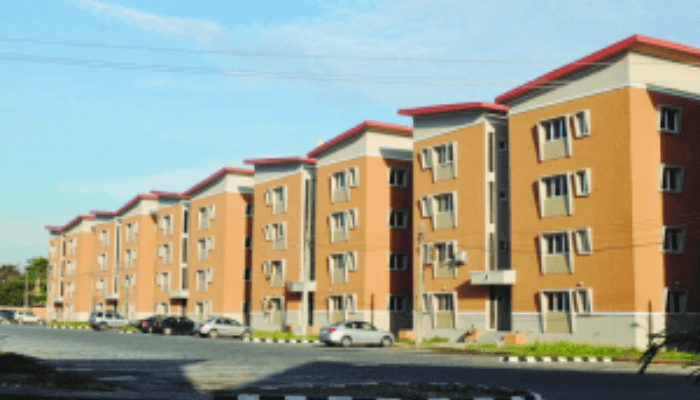Media reports indicate that tenants in the Federal Capital Territory FCT) and, indeed, elsewhere around the country, are in for aggravated hard times as landlords and estate agents conspire to inflict more hardship on them.
According to the reports, rent in some locations across the country, including the FCT, have increased by over 35 per cent or are on the verge of attaining that outrageous leap. The situation is not very different in Lagos, where landlords in areas like Ikoyi, Victoria Island, and Lekki have increased rents by, at least, 30 per cent.
In FCT, for instance, the renewed onslaught on tenants is attributed to influx of politicians, their families and aides into the capital city as a new administration gets set to be instituted.
Though the surge in property values is proving to be a boom for estate developers, landlords, and property agents, who are cashing in on the high demand for housing, expectedly, the situation is becoming increasingly challenging for many Nigerians who cannot afford the high-end prices.
Some tenants have expressed their struggles to pay their annual rent due to the recent increase, claiming that landlords are hiking rent at their own discretion without considering the tenants’ circumstances.
Furthermore, the security situation across the nation is not helping matters as people fleeing the violence in states in the North East, North West, some parts of North Central and South East are moving into Abuja, a place assumed to be safer.
According to the Central Bank of Nigeria (CBN), Nigeria’s housing deficit was at seven million in 1991 and rose to 12 million in 2007, 14 million in 2010 and 20 million units in 2019. The Federal Mortgage Bank of Nigeria (FMBN) claims that it is currently at 28 million units as at January 2023.
What this means is that 28 million people or more are homeless and the CBN estimated that N21 trillion will be needed to finance this deficit. With a growing population of 200 million Nigerians, the current deficit is extremely high.
Housing supply is one of the indices of multi-dimensional poverty that challenges Nigerians, as a significant portion of the population yearns for and seeks affordable housing, both for purchase and for rent.
Experts believe that only 10 per cent of those who want to own a home in Nigeria can afford it, either through purchase or personal construction, compared to 72 per cent in the United States, 78 per cent in the United Kingdom, 60 per cent in China, 54 per cent in South Korea and 92 per cent in Singapore.
Yet, the objectives of the National Housing Policy in Nigeria are to ensure that all Nigerians owned or had access to decent, safe and sanitary housing accommodation at affordable cost. In our opinion, the crux of the matter in the housing dilemma hinges on inflation and the free fall of the naira against the dollar. These are undeniable factors that have impacted negatively on the cost of building materials most of which are imported.
As uncertain as the situation already is, there are growing fears among developers and property managers that there may even be harsher times ahead for the real estate market while urging subscribers to brace up for future shocks.
The yearly core inflation rate accelerated for the 10th straight month to a 16-year high of 19.2 per cent in January, up from 18.5 per cent in the prior month. On a monthly basis, consumer prices surged by 1.87 per cent, the most in almost 16 years, after a 1.71 per cent increase in the previous month.
We are worried that housing, a key index in assessing human development, may constrain Nigeria’s effort at lifting millions out of poverty. And this, in spite of the recent commissioning by President Muhammadu Buhari of a N9.5 billion, 748 housing units located on a 18.5 hectare land in Zuba, a suburb of the Federal Capital Territory, Abuja. While we commend this seeming drop in the ocean effort, it is our considered opinion that affordable housing delivery schemes must be incorporated into the formulation and implementation of housing policies and programmes in Nigeria and it should not be the sole responsibility of the government.
The need for private sector participation to support the government cannot be over- emphasized. This, in our view, entails a deliberate policy of incentivising primary mortgage institutions and others in the housing sector. It is pertinent to emphasise that housing in Nigeria is in desperate need of concerted amassing of resources so as to address the shortfall.
It is intriguing, in our opinion that in the midst of the housing shortage, there are estates, particularly in Abuja, lying fallow and unoccupied. This newspaper, therefore, urges the Economic and Financial Crimes Commission (EFCC) and other anti-graft agencies to find out who owns these houses and why they are not occupied. Those houses could have been used to launder dirty money.
We believe that through collaborative efforts, Nigeria can improve access to adequate and affordable housing and boost economic development in the country.





